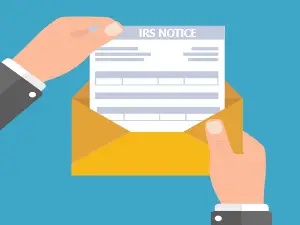
Understanding the IRS Substitute for Return
Click to ask Mike Ask Mike The Internal Revenue Service (IRS) Substitute for Return (SFR) is a term many taxpayers

Dealing with IRS collection notices can be a daunting experience for many taxpayers. These notices serve as a formal communication from the Internal Revenue Service (IRS) regarding unpaid taxes or other tax-related issues. Understanding the purpose and content of these notices is crucial for individuals and businesses to navigate the complex world of tax compliance and resolution. In this article, we will delve into the different types of IRS collection notices, their significance, and how to respond to them effectively.
Types of IRS Collection Notices
Understanding the Significance
IRS collection notices are not to be taken lightly. They signal the IRS’s intent to collect unpaid taxes and can lead to serious consequences if ignored. Here’s what you need to know:
How to Respond Effectively
Responding to IRS collection notices is crucial for resolving tax issues and avoiding further complications. Here’s a step-by-step guide on how to respond effectively:
Conclusion
Understanding IRS collection notices is crucial for taxpayers facing unpaid tax debts. These notices serve as official communication from the IRS and demand timely attention. Ignoring them can lead to severe consequences, including asset seizures and financial distress. By carefully reading the notices, contacting the IRS to discuss payment options, and seeking professional assistance when needed, taxpayers can navigate the complex world of tax collection and work toward resolving their tax issues efficiently and effectively. Remember that compliance with tax obligations is essential to maintain your financial well-being and avoid unnecessary legal complications. If you would like to understand and figure out the best approach to take care of your tax issue based on the notices that the IRS sent you, you can look it up by clicking here.
You can now ask our AI assistant any questions you have about your tax debt or any tax-related issues. Whether you’re unsure about payment plans, need clarification on penalties, or want information on how to resolve your tax situation. Our AI is ready to assist you with all your tax-related concerns.

By interacting with our AI assistance, you agree to our terms & conditions. Enjoy our AI Tax Assistant responsibly.
Ask me any questions...
Related Posts

Click to ask Mike Ask Mike The Internal Revenue Service (IRS) Substitute for Return (SFR) is a term many taxpayers

Click to ask Mike Ask Mike The Internal Revenue Service (IRS) Substitute for Return (SFR) is a term many taxpayers

Click to ask Mike Ask Mike The Internal Revenue Service typically operates within a 10-year window, commencing from the

Click to ask Mike Ask Mike The Internal Revenue Service (IRS) operates within specific timeframes dictated by statutes of limitations

Click to ask Mike Ask Mike understanding the ins and outs of the 10-year statute of limitations (SOL) is essential.
Recent Posts

Click to ask Mike Ask Mike The Internal Revenue Service (IRS) Substitute for Return (SFR) is a term many taxpayers

Click to ask Mike Ask Mike The Internal Revenue Service (IRS) Substitute for Return (SFR) is a term many taxpayers

Click to ask Mike Ask Mike The Internal Revenue Service typically operates within a 10-year window, commencing from the

Click to ask Mike Ask Mike The Internal Revenue Service (IRS) operates within specific timeframes dictated by statutes of limitations

Click to ask Mike Ask Mike understanding the ins and outs of the 10-year statute of limitations (SOL) is essential.
Disclaimer: This is educational content, not legal, accounting, or tax advice.
This is a tax debt resource website, not to be used in lieu of a tax attorney or for legal advice. All information, Ai chat responses, articles, materials, and content are intended to inform users on a variety of tax topics. In no way is it intended to be construed as accounting, legal, tax, other services or advice. This site is not intended to be used to avoid tax penalties or tax debt that may be imposed by law. Terms and Conditions. Your use of this site constitutes acceptance of the following terms and conditions.
This is a tax debt resource website, not to be used in lieu of a tax attorney or for legal advice. All information, Ai chat responses, articles, materials, and content are intended to inform users on a variety of tax topics. In no way is it intended to be construed as accounting, legal, tax, other services or advice. This site is not intended to be used to avoid tax penalties or tax debt that may be imposed by law. Terms and Conditions. Your use of this site constitutes acceptance of the following terms and conditions.
© 2023 · Tax Debt Monster, Inc. All rights reserved

For all Tax Professionals that would like to partner up with us. By partnering with us, you’ll help us connect and make a positive impact in the tax community. Partner up with us and receive a complimentary Ai Tax Sidekick to help support your clients at no cost! Click here if you’re interested in our Partner-Up program

By interacting with our AI assistance, you agree to our terms & conditions. Enjoy our AI Tax Assistant responsibly.
How may I help you with your tax issue?